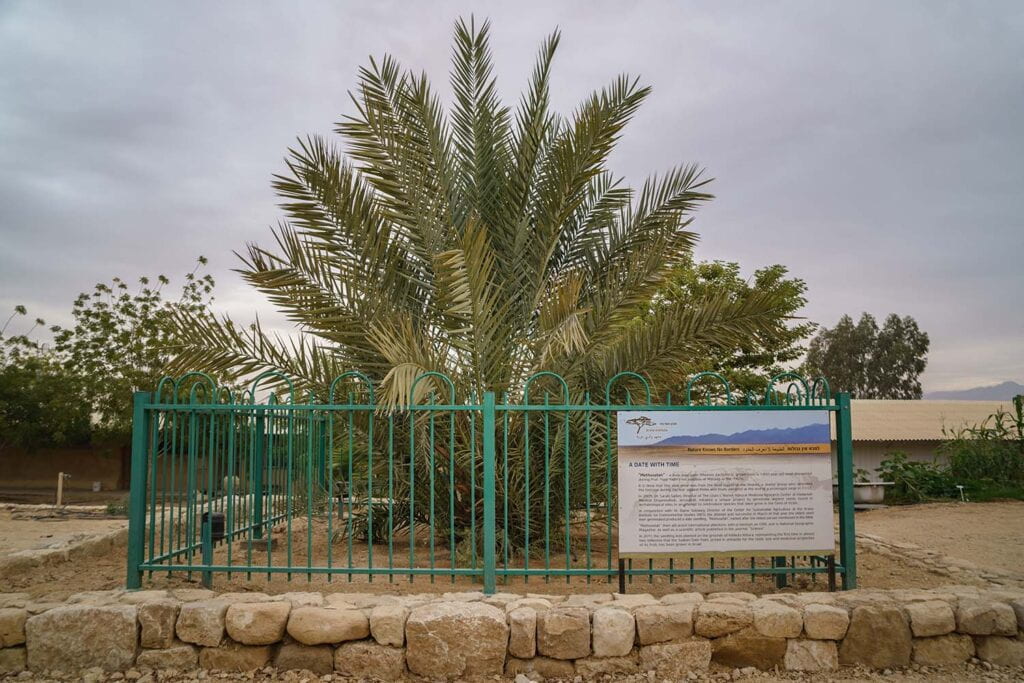NYU researchers use “resurrection genomics” to sequence genome of extinct date palms germinated from 2,000-year-old seeds
In a recent study for the Proceedings of the National Academy of Sciences, researchers from NYU Abu Dhabi’s Center for Genomics and Systems Biology—along with their research colleagues in Israel and France—used a technique called “resurrection genomics” to successfully sequence the genome of 2,000-year-old date palms. This study marks the first time researchers sequenced the genomes of plants from ancient, germinated seeds. The research team, led by NYU biology professor Michael Purugganan, germinated date palm seeds that were radiocarbon-dated from the 4th century BCE to the 2nd century CE to yield new, viable plants that they could, in turn, use to conduct whole genome sequencing.

A date palm germinated from a 2,200 year old seed growing in Israel
Photo credit: Marcos Schonholz/The Arava Institute for Environmental Studies
What Did They Learn?
By examining the genome of a species called Phoenix dactylifera that thrived millennia ago, Purugganan and his team determined how these previously extinct Judean date palms evolved over time. Between the 4th century BCE and 2nd century CE, they observed that date palms in the eastern Mediterranean region showed increasing levels of genes from another species, called Phoenix theophrasti, which grows in Crete and other Greek islands as well as southwestern Turkey today due to the hybridization between species. The team concluded that the increasing levels of genes from P. theophrasti during this time signifies the increasing influence of the Roman Empire in the eastern Mediterranean region.
New Possibilities with Resurrection Genomics
Resurrection genomics is an alternative approach for sequencing DNA that is particularly useful for studying ancient and extinct plant species, the researchers note. Ancient plant DNA can be tricky to study, as it easily degrades without the protection of material like bone and only small quantities are usually found. But regrowing the whole plant offers new possibilities.
“We are fortunate that date palm seeds can live a long time—in this case, more than 2,000 years—and germinate with minimal DNA damage in the region’s dry environment,” says Purugganan, who is also affiliated with NYU Abu Dhabi and the Institute for the Study of the Ancient World. “This ‘resurrection genomics’ approach is a remarkably effective way to study the genetics and evolution of past and possibly extinct species like Judean date palms. By reviving biological material, such as germinating ancient seeds from archaeological and paleontological sites or historical collections, we can not only study the genomes of lost populations but also, in some instances, rediscover genes that may have gone extinct in modern varieties.”
To read the full study from Purugganan and his team, titled “The genomes of ancient date palms germinated from 2,000 year old seeds,” head to pnas.org.
Content adapted with permission from NYU News by Samantha Jamison.